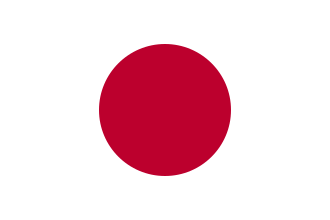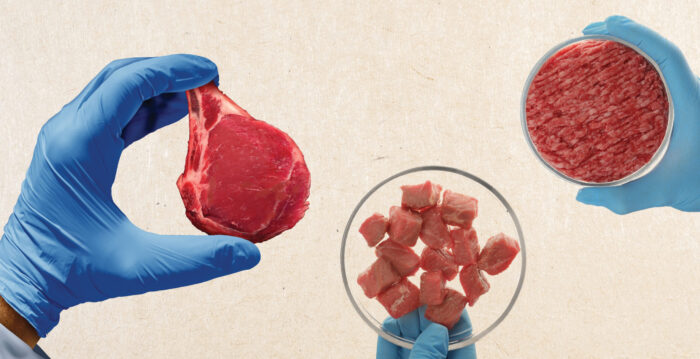Has the advancement of technology and ever-changing production habits affected the kashrus industry and how?
Let’s understand how kosher certification works and then see if technology has affected the industry. There are many moving parts when it comes to certifying a product as kosher. First, the raw materials must be kosher. Next, the production process should be set up so that it is done in a kosher way – not mixing kosher and non-kosher ingredients, designated kosher equipment, etc. Finally, verification is necessary to ensure that the company complies with the rules and regulations of the production process, which varies greatly in its implementation from facility to facility and from organization to organization. Some products require a mashgiach temidi based on Halacha – processing meat, fish, wine, Cholov Yisroel, etc. Then some products depend on the agency’s policies – is a mashgiach temidi necessary for Pas Yisroel, Bishul Yisroel, etc.? Finally, there is everything else that is inspected regularly, but the frequency depends on the agency – should it be visited weekly, monthly, quarterly, annually, etc.?
Raw Material Approval
When a company applies for kosher certification, they are required to submit all ingredients that will be used in production to OK Kosher for approval. These ingredients go through a vetting process, where a group of experienced rabbis reviews them on an individual basis to ensure that they comply with OK Kosher policies. With the advent of technology, this process has become more comprehensive and accurate. In years gone by, an ingredient was viewed in a vacuum – this is what was submitted, can we approve it, or not? Now, when an ingredient is submitted, besides looking at the actual ingredient, we can review the entire vendor. Our state-of-the-art computer program has information accumulated from years of rabbis researching and visiting, so it is possible to have an ingredient that we accept from one facility, but an identical ingredient from another facility will be rejected because the second facility does not meet OK Kosher standards. Conversely, ingredients used to be simple and definitive in terms of their status – non-kosher, kosher pareve, kosher dairy, kosher meat, kosher fish. Now, the up-and-coming technology of lab grown meat has thrown a monkey wrench into the entire food industry. The question of the kosher status (discussed by Rabbi Kesselman in his series of articles on this topic) is a current debate among the Poskim and we can assume there will be bona fide views on both sides of the aisle which will further murky the waters.
Production Process
How is a product produced? With the revolutionary introduction of mass production, companies could produce products with an identical process and lower the final cost. As time goes on, companies look for more cost saving options to undercut the competition, like lowering their prices by moving the facility to a location with cheaper real estate or lower labor costs. With technology, companies have found ingenious ways to produce quality products at lower costs through recycling and waste reduction, but this means using more complex ingredients and the kashrus status must be carefully researched.
As technology advanced, production facilities became more automated, minimizing the chance of human error or forgery. In the past, production records relied on data input by production personnel, but there was always the chance that it was incorrect, or, rarely, that the data was deliberately changed. Now, records are usually input via bar code scanners and stored on computer programs that are difficult to modify.
Then and Now
Years ago, when a rabbi went to inspect a facility, he printed out an ingredient list and a product list before his trip. These lists were out of date the moment the printer started running! If there was a change between the printing time and the inspection, the new information wouldn’t be on the list. Today, all of the data is live, with continuous updates, and the rabbi accesses it online during his actual visit.
In addition, when the kosher certification of an ingredient expired or was removed, the hechsher would contact the company via fax, mail, or phone call, and do their best to ensure the “no longer kosher” ingredient was not used in any certified products. Unfortunately, we were limited by our methods of communication and verification. There was an inevitable delay from the time the personnel at the other hechsherim received the information, until it was passed along to the facility personnel, and it was finally conveyed to the production floor. If the information was initially sent on Friday afternoon, it might not be received by the production team until Monday morning even though the production team was operating over the weekend. Now, we have access to email messaging, with instantaneous delivery and easy mobile access, even when people are working remotely or outside of their official work hours. When there is an issue, there is immediate dialogue to address the issue.
Also, when a product is inadvertently mislabeled, whether a dairy product mislabeled as pareve, or a non-kosher product labeled as kosher, an alert is typically sent out by the kashrus agency and a recall done by the company. Technology allows us to effectively track where all the products have gone since leaving the distributor and have them removed from the shelves before the consumer purchases them. But technology also may be the reason there was mislabeling in the first place. Many companies have a graphic designer for their labels, and they often have templates with the company’s logo that they use for multiple products. We’ve even had an instance where the kosher symbol was right next to the logo and the “copy/paste” of the company logo from one label to another included the wrong kosher symbol.
The Consumer’s Role
What is the consumer’s role in kosher certification? As we know, capitalism is what drives the economy. A fundamental of a company’s modus operandi is to supply the demand – the bigger the demand that the company can meet, the more capital the company stands to earn. A company may start on one trajectory, but when they see what consumers demand, they change course and adapt to supply the current demand and be successful in their sector. Adaptations might include organic or vegan certifications, or kosher certification. The more consumers request kosher
products, the more the manufacturers will try to produce kosher products.
Besides demand, there is another significant role – that of the conscientious consumer. Conscientious consumers check for a kosher symbol each time they purchase a product. They might even catch a mislabeled or unauthorized product. Products may unintentionally be mislabeled as pareve when they are clearly dairy, and a consumer will alert the relevant agency so that they can immediately rectify the situation. Additionally, there are sometimes unauthorized products and a consumer will see something unusual, or usually not kosher, and reach out to the agency to verify that the product is certified. When the agency receives this information, technology allows them to immediately identify the product as unauthorized and require the company to remove it from the market.
A conscientious consumer wants to report such issues, but in the past, it was a little tedious to find the correct contact information for the relevant agency and to find time during working hours to report their findings. Today, many agencies have easily accessible modes of communication (email, WhatsApp, Instagram) where one can report such findings or verify the authenticity of a product. This has led to the agencies’ ability to rectify such situations in a swift and timely manner.
Editors Note: So, has kashrus been affected by technology? Definitely. Is it for better or worse? The Lubavitcher Rebbe taught that “our Sages have said: ‘All that Hashem created was created for His honor.’ This applies also to all the scientific discoveries of recent years—their purpose is to add honor to G‑d by using them for holiness, Torah, and mitzvos…The ultimate purpose for which these new technologies were developed, is that they be used for holy purposes…The fact that they can also be used for mundane purposes, and even things that are the opposite of holiness, is to facilitate free choice…and Hashem commands, requests, and grants the capacity that ‘you shall choose life.”1 While technology certainly has its challenges, we can definitively say that the overall benefit of technology to kosher food production is certainly worthwhile.
1 Toras Menachem Hisvadius 5742 Vol. 4, page 2150.


 EN
EN  ZH
ZH  KR
KR  BR
BR  ES
ES  IN
IN  IL
IL  JP
JP 



